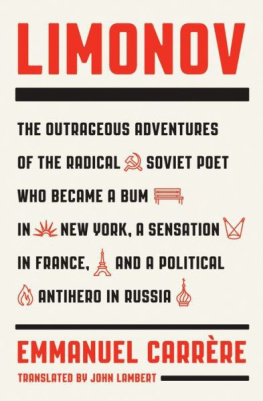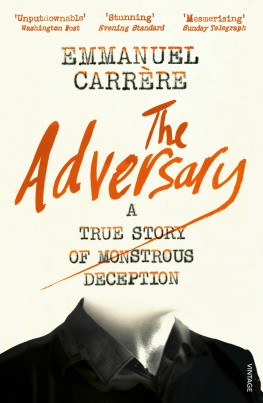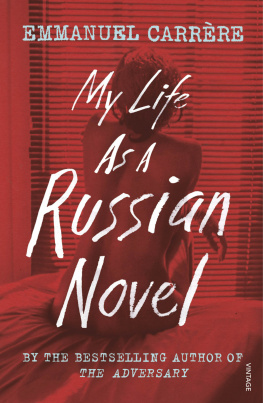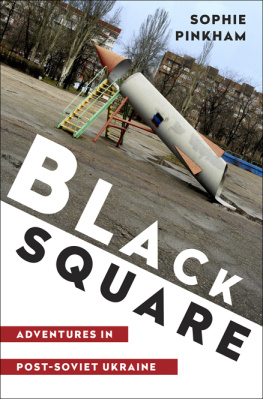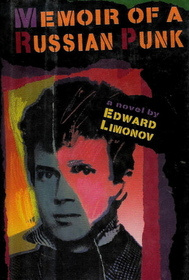
The author and publisher have provided this e-book to you for your personal use only. You may not make this e-book publicly available in any way. Copyright infringement is against the law. If you believe the copy of this e-book you are reading infringes on the authors copyright, please notify the publisher at: us.macmillanusa.com/piracy.
Whoever wants the Soviet Union back has no brain.
Whoever doesnt miss it has no heart.
VLADIMIR PUTIN
CONTENTS
I. |
II. |
III. |
IV. |
V. |
VI. |
VII. |
VIII. |
IX. |
PROLOGUE
Moscow, October 2006, September 2007
UNTIL ANNA POLITKOVSKAYA was shot dead in her elevator on October 7, 2006, only those who had been closely watching the Chechen wars knew the name of this courageous journalist and declared opponent of Vladimir Putins politics. At that moment, her sad, determined face became an icon of freedom of expression in the West. At the time I was traveling to Russia often, and had just filmed a documentary in a small Russian city, which is why as soon as the news broke a magazine suggested I get on the first plane to Moscow. My assignment wasnt to investigate Politkovskayas murder, but rather to talk with the people whod known and loved her. Thats how I came to spend a week in the offices of Novaya gazeta , the newspaper where shed been a star reporter, as well as in the offices of associations for the defense of human rights and committees made up of mothers of soldiers whod been killed or wounded in Chechnya. These offices were tiny, poorly lit, and equipped with old computers. The activists who welcomed me were often old as well, and there were pathetically few of them. Everyone knew everyone in this very small circle, and it didnt take me long to get to know them all too. This tiny group constituted practically the entire democratic opposition in Russia.
My several Russian friends aside, I know a small circle in Moscow made up of French expatriates, journalists, and businessmen, and when I told them in the evening of my visits during the day they smiled, condescension mixing with sympathy: of course these virtuous democrats and civil rights activists were respectable people, they said, but the truth is that no one here gives a damn. They were fighting a war that was lost before it even began in a country where people care little about formal liberties, as long as everyone has the right to get rich. Moreover, nothing amused or annoyed my expatriate friends as much, depending on their character, as the view widely held in France that Politkovskayas murder had been ordered by the FSBthe political police known as the KGB in the days of the Soviet Unionand more or less by Putin himself.
Now hold on just a second, said Pavel, a Franco-Russian academic turned businessman. Youre being ridiculous. You know what I readin the Nouvel Observateur , I think? That its pretty strange that, as if by chance, Politkovskaya was killed on Putins birthday. As if by chance! Can you imagine how stupid you would have to be to write that as if by chance, in black and white? Just imagine the scene: crisis meeting at the FSB. The boss says: Okay, guys, were really going to have to rack our brains. Its going to be Vladimir Vladimirovichs birthday soon and weve got to come up with a gift thatll really make him happy. Any ideas? Everyone hems and haws, then someone pipes up: What if we bring him the head of Anna Politkovskaya, that pain in the ass whos always criticizing him? A murmur of approval runs through the room. Now theres an idea! Everybody get to work, youve got carte blanche. Im sorry, Pavel said, but I dont buy it. Maybe in a Russian remake of Monsieur Gangster . But in real life? No. And you know what? The truth, which really shocked the bleeding hearts in the West, is what Putin said: that Anna Politkovskayas assassination and all the stink it caused hurt the Kremlin far more than the articles she published while she was alive in a newspaper no one read.
I listened to Pavel and his friends, in the gorgeous apartments people like that rent for a fortune in the heart of Moscow, defending the powers that be by saying that first of all, things could be a thousand times worse, and second, the Russians make do with the situation as it iswhy should we go around lecturing them? But I also listened to sad, worn-out women who told me day in, day out of nighttime kidnappers who whisked their victims away in cars with no plates, soldiers tortured not by the enemy but by their own superiors, and above all, justice denied. Thats what came up again and again. If the police and army are corrupt, well, thats the way things are. If human life is cheap, thats the Russian tradition. But the arrogance and brutality of the authorities when simple citizens dared ask them for an explanation, the authorities knowledge of their own impunitythat was what neither the mothers of the dead soldiers, nor those of the children massacred at the school in Beslan in the Caucasus, nor those of the victims of the Dubrovka Theater, could stand.
* * *
You remember: it was in October 2002. Every television in the world showed nothing else for three days. Chechen terrorists had taken the theaters entire audience hostage during the performance of a musical comedy called Nord-Ost . Foreclosing any possibility of negotiation, Russian special forces resolved the situation by gassing the hostages along with their hostage takersdemonstrating an inflexibility later celebrated by President Putin. The number of civilian casualties is still in question. Official estimates put the total at around 150, and their next of kin are considered accomplices when they ask if things might have been done somewhat differently and whether theyand their mourningmight be treated with a little more respect. Each year since the hostage-taking, these families have gathered for a commemoration ceremony which the police dont dare ban outright but nevertheless surveil like a seditious gatheringwhich in fact its become.
I went. There were two or three hundred people, Id say, on the square in front of the theater, and around them just as many OMON riot police, equipped with helmets, shields, and heavy clubs. It started to rain. Umbrellas opened above the candles; the candles, with their paper rings meant to shield fingers from the burning wax, brought to mind the Orthodox services I was taken to at Easter when I was little. Signs with the photos and names of the dead now replaced the icons. The people holding these candles and signs were orphans, widows and widowers, parents whod lost a childsomething for which, as in French, there is no word in Russian. No representative of the state had come, as the families representative emphasized with cold anger in the few words he spokethe only ones in the whole ceremony. No speeches, no slogans, no chanting. The people were content to stand there in silence with their candles in their hands, or to talk quietly in small groups among the ranks of OMON police, whod sealed off the perimeter. Looking around, I recognized several faces. In addition to the mourning families, every last member of the small world of opposition figures Id met over the last week was there, and I exchanged a few nods with them, gestures marked by a fitting sense of grief.
Right at the top of the steps, in front of the closed doors of the theater, a silhouette struck me as vaguely familiar, someone I couldnt quite identify. It was a man dressed in a black coat, holding a candle like the others, surrounded by several people with whom he spoke in a low voice. In the center of a circle, dominating the crowd, standing back and yet still attracting attention, he exuded importance; strangely, I was reminded of a gang leader attending the funeral of one of his own, attended by a close guard. I could just see parts of his profile, a little beard jutting from the raised collar of his coat. A woman beside me whod seen him as well said to her neighbor: Eduards here, thats good. Despite the distance, he turned his head as if hed heard. The flame from the candle sketched the features of his face.
Next page
